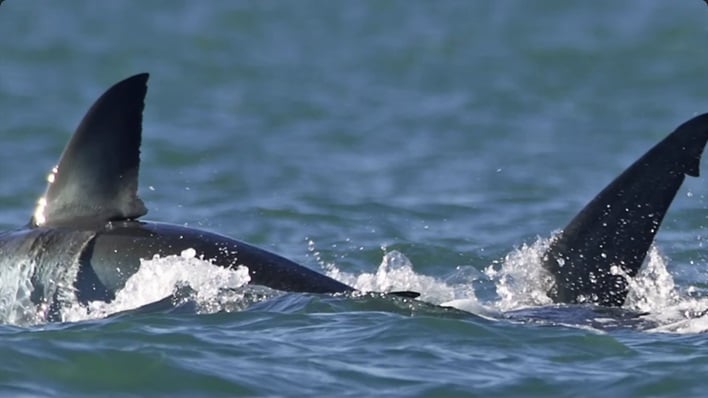Watch An Orca Killer Whale Take Out A Great White Shark In Less Than 2 Minutes

Scientists who witnessed the account said the attack was “unprecedented.” The research team who had been following two orcas in particular off the coast of South Africa in the Indian Ocean, noted the killer duo had been working together to bring down prey, including great whites. However, during the attack, the companion Orca who normally takes part in the killing festivities, was about 100m away and was not involved.
“But this took us off guard,” remarked shark biologist Dr Alison Towner, co-author of a recent paper giving more insights into killer whales preying on great white sharks.
The attack, which scientists referred to as “solo and swift”, occurred in 2023. The scientists added that the two orcas, nicknamed Port and Starboard, had already “exhibited a predilection for extracting and consuming the shark’s livers.” Starboard was the lone attacker in the documented killing of the juvenile white shark.
Dr Luke Rendell, a marine mammal scientist from the University of St Andrews, remarked it was “a really beautiful observation” of the Orca’s behavior. He added, “It’s interesting that it’s just one animal.” Pointing out the skill of the Orca, which was able to ram the shark in its side, and grab its pectoral fin to keep away from its razor sharp teeth.
The scientists are not surprised by the pair attacking great whites. Great white sharks are apparently a “big concentration of food,” and orcas are particularly fond of the sharks' livers. They are, however, concerned with the health repercussions for killer whales hunting sharks, and disruptions in the balance of apex predators having an affect on other species.
Dr Towner expressed concern that killer whales could be at a health risk due to ingesting toxins and metals from shark flesh. As for disrupting the balance of predators, Dr Towner explained, “Endangered African penguins could face increased predation by cape fur seals [if the fur seals are not being eaten by] white sharks.”
While the recent observations are fascinating, there is no way to know if the behavior is new, or simply never before observed. Regardless, the killer whale attack is an ominous reminder of just how dangerous the oceans can be.

